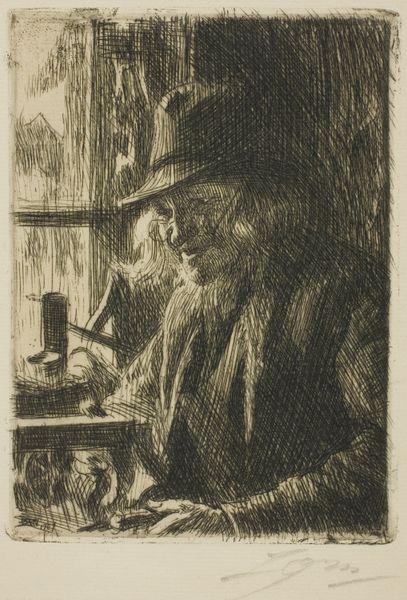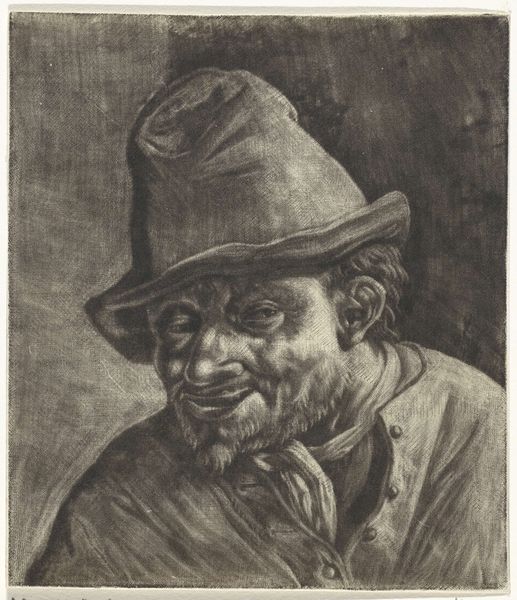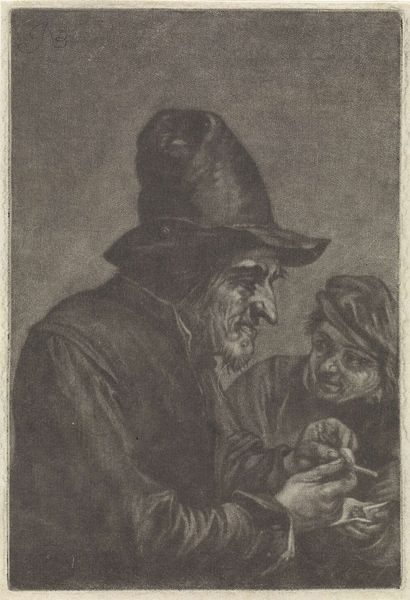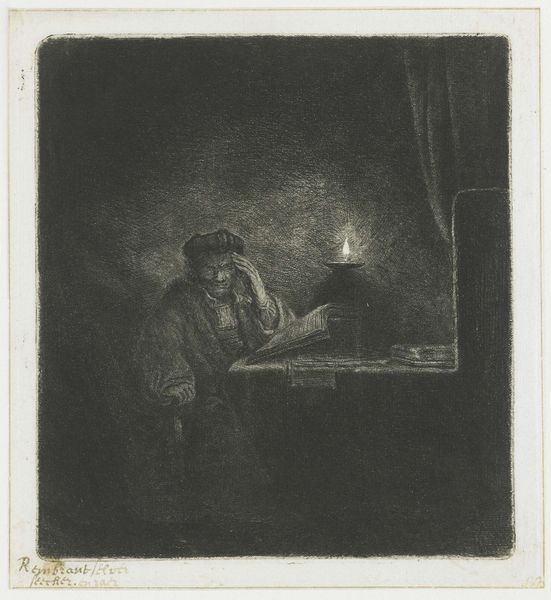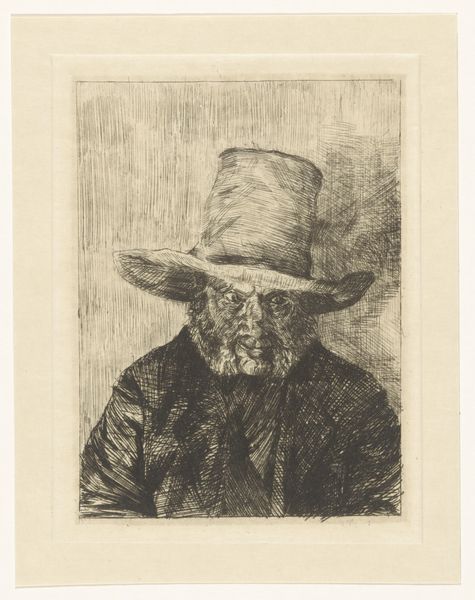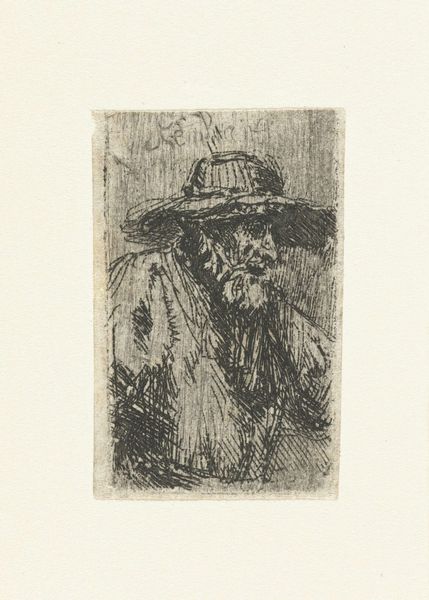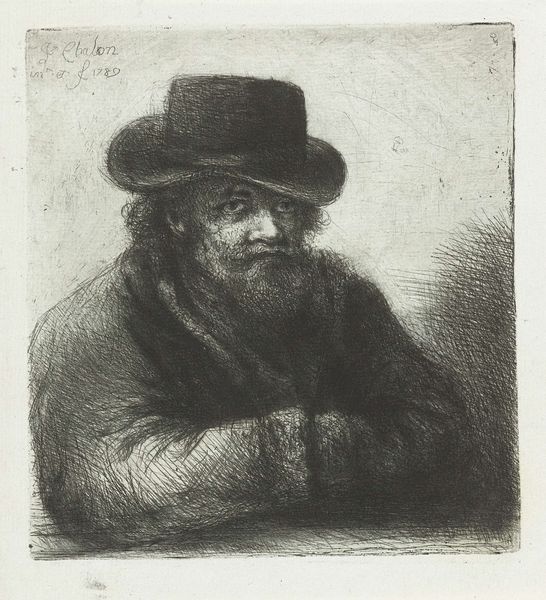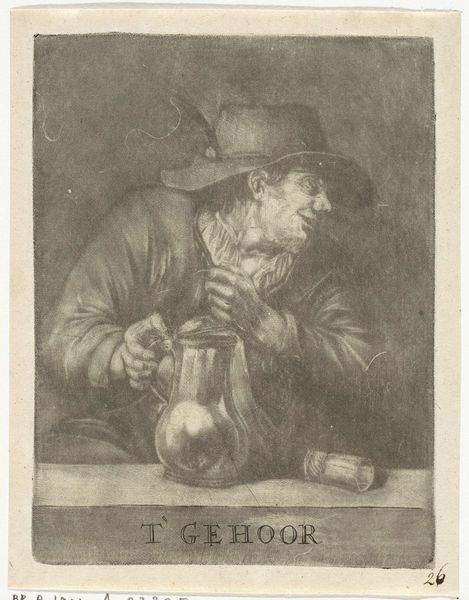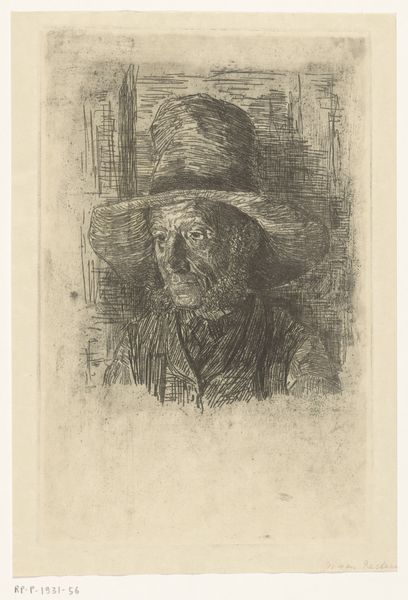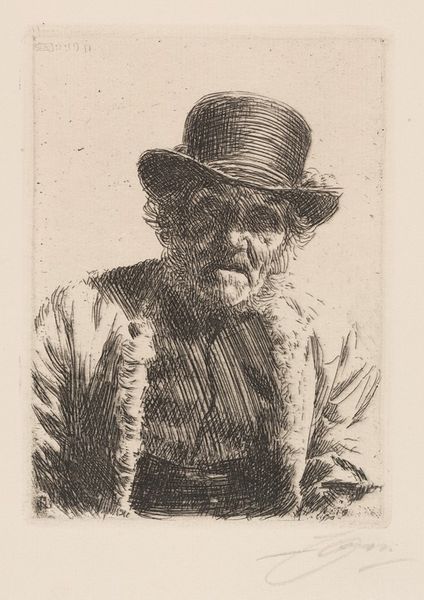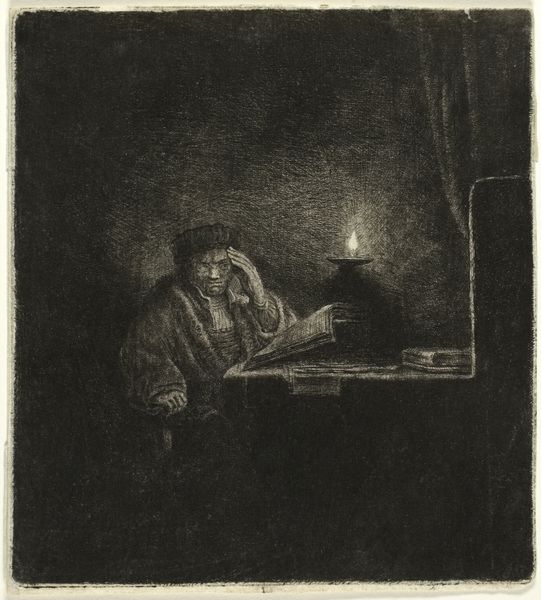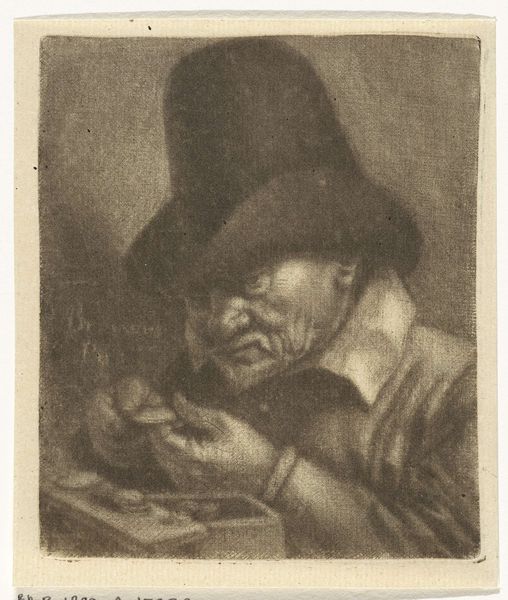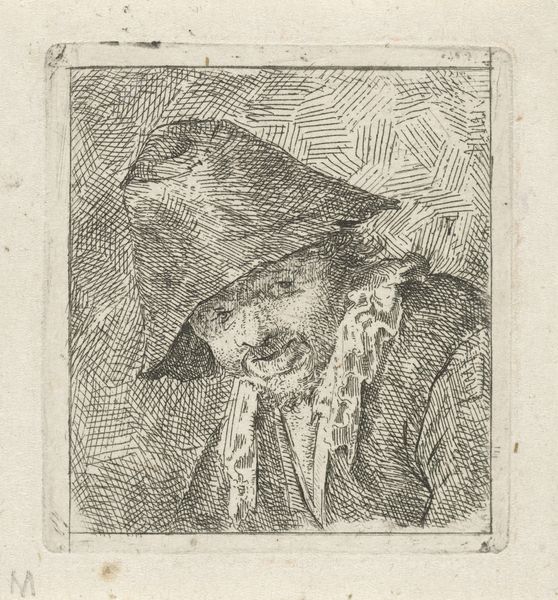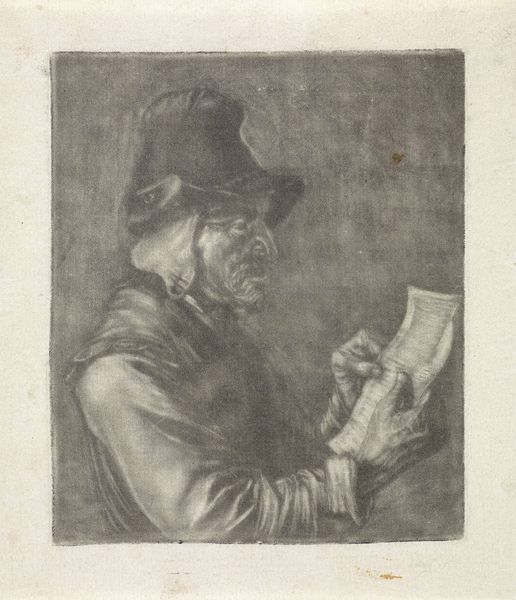
drawing, charcoal
#
portrait
#
drawing
#
baroque
#
charcoal drawing
#
pencil drawing
#
chiaroscuro
#
genre-painting
#
charcoal
#
charcoal
Dimensions: height 109 mm, width 93 mm
Copyright: Rijks Museum: Open Domain
Editor: This is "Man with an Oil Lamp," a charcoal drawing attributed to Johannes de Groot, made sometime between 1698 and 1776. It has a wonderfully moody, almost mysterious quality to it. How do you interpret this work, especially considering the limited light source? Curator: Light is everything here, wouldn't you agree? The stark contrast, the *chiaroscuro*, isn't just about technique. It speaks to a deeper human condition. Consider the lamp, a fragile beacon against an encroaching darkness. It's a visual metaphor for knowledge, for hope perhaps, struggling against the unknown. Editor: So, the lamp isn't just a lamp? It’s more of a symbol? Curator: Precisely. Think about what light represents culturally, psychologically. In many traditions, light is synonymous with understanding, with divinity. This man tending to the flame, he's tending to something far more profound than just a source of illumination. Does his shadowed face suggest something to you? Editor: There's a sense of introspection, maybe even worry? He’s almost shielding the light… Curator: Yes! And shielding, protecting… Perhaps he's guarding a secret, a truth? Notice how the light illuminates his hands, the tools of his trade, of his survival. And the hat shadowing his face... is he hiding, even from himself? De Groot is drawing upon layers of visual language. Editor: It’s amazing how much can be conveyed through such simple materials. I hadn't thought about it as having such psychological depth. Curator: Exactly. The artist's choices reveal the image's powerful and timeless themes. That little flame invites such introspection. Editor: Thank you! That’s given me so much more to think about.
Comments
No comments
Be the first to comment and join the conversation on the ultimate creative platform.
